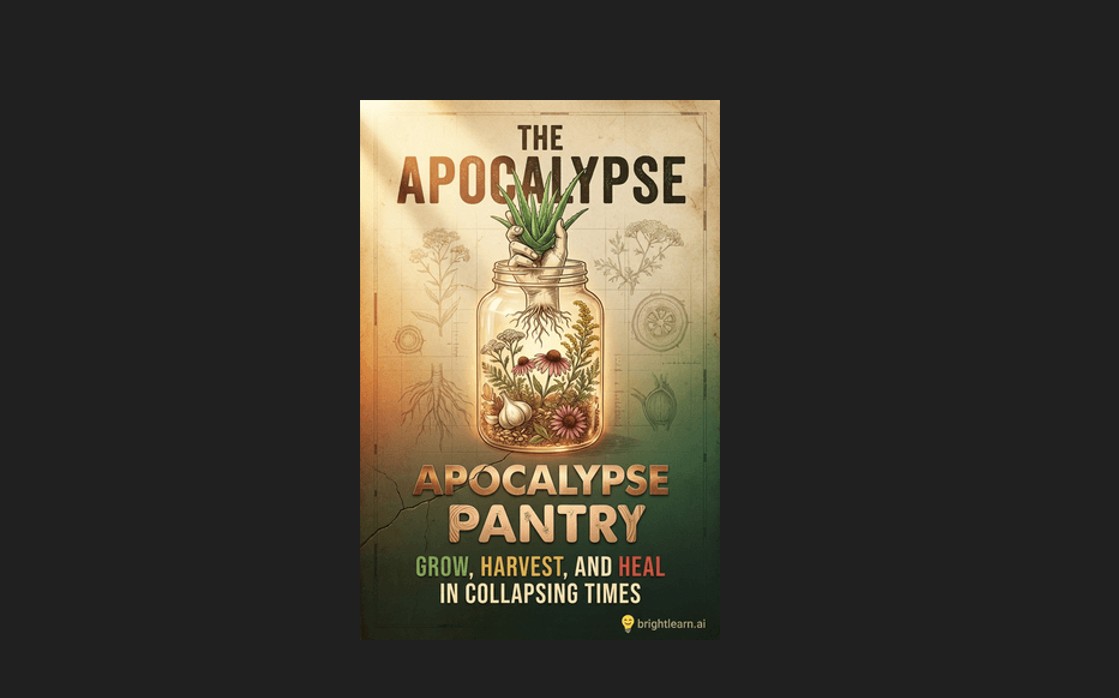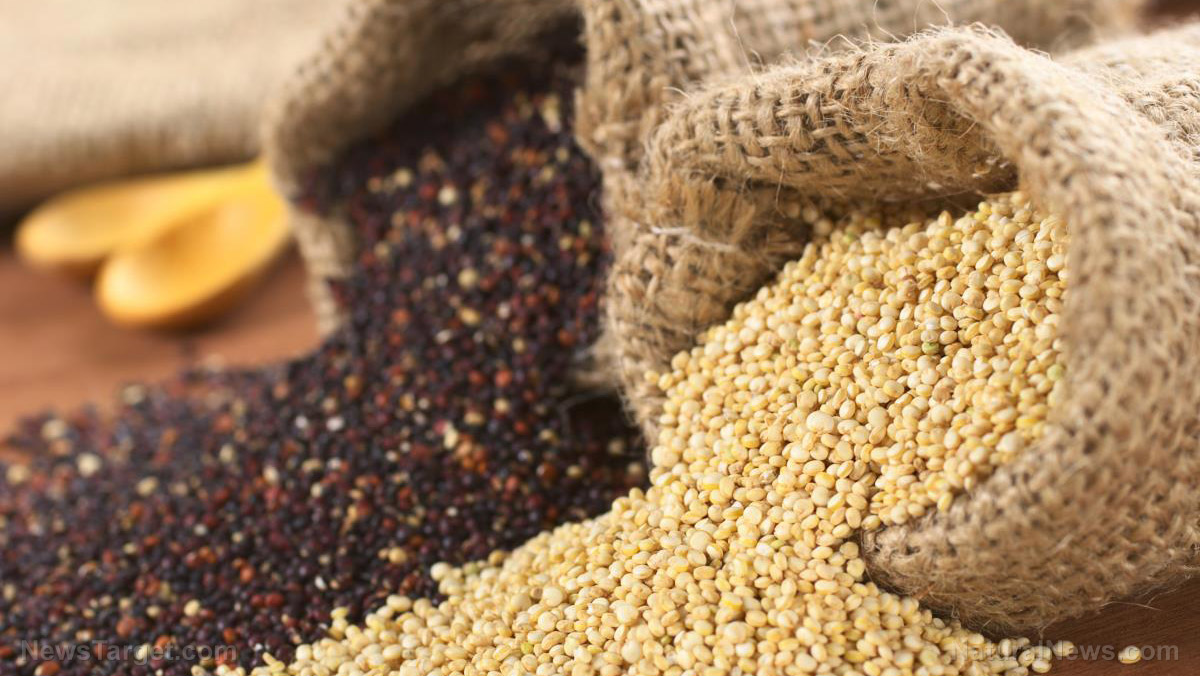© Brighteon.com All Rights Reserved. All content posted on this site is commentary or opinion and is protected under Free Speech. Brighteon is not responsible for comments and content uploaded by our users.
Neonicotinoid Pesticides Have Caused A Huge Surge in the Toxicity of U.S. Agriculture
172 followers
Follow
0
Share
Report
165 views • 12/29/2021
https://articles.mercola.com/sites/articles/archive/2021/12/28/neonicotinoids-side-effects.aspx
https://www.youtube.com/watch?v=a_elozWX4Pw
Neonicotinoids Pose Ecosystemwide Threat
A majority of soybean, corn, canola and sunflower seeds planted in the U.S. are precoated with neonicotinoid insecticides, also known as “neonics.” More than half of garden plants attractive to bees sold at garden centers are also pretreated with these toxic pesticides
Neonics have been shown to threaten the entire food chain, having toxic effects not just on pollinators such as bees, but also invertebrates, birds and other wildlife
American agricultural land is now 48 times more toxic to insects than it was two decades ago, and between 1992 and 2014, neonicotinoids accounted for 92% of the total acute insecticide toxicity load
Neonics affect migration behavior of songbirds by affecting their feeding patterns and fat stores. The chemicals act as a rapid appetite suppressant
Research by the EPA in 2014 and 2019 concluded that neonicotinoid-treated seeds provide no significant financial or agricultural benefits for farmers
This article was previously published December 10, 2019, and has been updated with new information.
Unbeknownst to many Americans, a majority of soybean, corn, canola and sunflower seeds planted in the U.S. are precoated with neonicotinoid insecticides,1 also known as "neonics." Needless to say, since the chemical is taken up systemically through the plant, it cannot be rinsed off.
A 2015 report2 by the American Bird Conservancy revealed neonics were found in congressional cafeteria food, demonstrating just how pervasive they have become in our food supply.
Wildflowers growing around the margins of fields are also severely contaminated with neonics, and the concentrations of the toxin in the pollen and nectar of these flowers are sometimes higher than the levels found in the crop itself.3
More than half of garden plants attractive to bees sold at garden centers — such as tomatoes, squash, salvia and various flowers — are also pretreated with these toxic pesticides.4,5 This is a travesty, as many add flowering plants to their garden to support the local pollinator population, not realizing their garden is actually contributing to the pollinators' decline.
Neonicotinoids Are an Ecosystemwide Threat
Ironically, neonicotinoids were originally introduced as a safer alternative to other pesticides, yet studies over the years have repeatedly found the opposite to be true. As summarized in "The Environmental Risks of Neonicotinoid Pesticides: A Review of the Evidence Post 2013," published in 2017:6
"Neonicotinoid pesticides were first introduced in the mid-1990s, and since then, their use has grown rapidly. They are now the most widely used class of insecticides in the world, with the majority of applications coming from seed dressings.
Neonicotinoids are water-soluble, and so can be taken up by a developing plant and can be found inside vascular tissues and foliage, providing protection against herbivorous insects.
However, only approximately 5% of the neonicotinoid active ingredient is taken up by crop plants and most instead disperses into the wider environment. Since the mid-2000s, several studies raised concerns that neonicotinoids may be having a negative effect on non-target organisms, in particular on honeybees and bumblebees …
Whilst much of the recent work has focused on the impact of neonicotinoids on bees, a growing body of evidence demonstrates that persistent, low levels of neonicotinoids can have negative impacts on a wide range of free-living organisms."
Similarly, the American Bird Conservancy in 2013 warned:7
"It is clear that these chemicals have the potential to affect entire food chains. The environmental persistence of the neonicotinoids, their propensity for runoff and for groundwater infiltration, and their cumulative and largely irreversible mode of action in invertebrates raise significant environmental concerns …"
Also...
'Silent Spring' All Over Again
Huge Songbird Decline Linked to Toxic Neonics
Neonics Used in Vain as They Provide No Benefit to Farmers
Mounting Evidence Shows Neonicotinoids Are Too Toxic to Use
For Optimal Health, Limit Your Pesticide Exposure
https://www.youtube.com/watch?v=a_elozWX4Pw
Neonicotinoids Pose Ecosystemwide Threat
A majority of soybean, corn, canola and sunflower seeds planted in the U.S. are precoated with neonicotinoid insecticides, also known as “neonics.” More than half of garden plants attractive to bees sold at garden centers are also pretreated with these toxic pesticides
Neonics have been shown to threaten the entire food chain, having toxic effects not just on pollinators such as bees, but also invertebrates, birds and other wildlife
American agricultural land is now 48 times more toxic to insects than it was two decades ago, and between 1992 and 2014, neonicotinoids accounted for 92% of the total acute insecticide toxicity load
Neonics affect migration behavior of songbirds by affecting their feeding patterns and fat stores. The chemicals act as a rapid appetite suppressant
Research by the EPA in 2014 and 2019 concluded that neonicotinoid-treated seeds provide no significant financial or agricultural benefits for farmers
This article was previously published December 10, 2019, and has been updated with new information.
Unbeknownst to many Americans, a majority of soybean, corn, canola and sunflower seeds planted in the U.S. are precoated with neonicotinoid insecticides,1 also known as "neonics." Needless to say, since the chemical is taken up systemically through the plant, it cannot be rinsed off.
A 2015 report2 by the American Bird Conservancy revealed neonics were found in congressional cafeteria food, demonstrating just how pervasive they have become in our food supply.
Wildflowers growing around the margins of fields are also severely contaminated with neonics, and the concentrations of the toxin in the pollen and nectar of these flowers are sometimes higher than the levels found in the crop itself.3
More than half of garden plants attractive to bees sold at garden centers — such as tomatoes, squash, salvia and various flowers — are also pretreated with these toxic pesticides.4,5 This is a travesty, as many add flowering plants to their garden to support the local pollinator population, not realizing their garden is actually contributing to the pollinators' decline.
Neonicotinoids Are an Ecosystemwide Threat
Ironically, neonicotinoids were originally introduced as a safer alternative to other pesticides, yet studies over the years have repeatedly found the opposite to be true. As summarized in "The Environmental Risks of Neonicotinoid Pesticides: A Review of the Evidence Post 2013," published in 2017:6
"Neonicotinoid pesticides were first introduced in the mid-1990s, and since then, their use has grown rapidly. They are now the most widely used class of insecticides in the world, with the majority of applications coming from seed dressings.
Neonicotinoids are water-soluble, and so can be taken up by a developing plant and can be found inside vascular tissues and foliage, providing protection against herbivorous insects.
However, only approximately 5% of the neonicotinoid active ingredient is taken up by crop plants and most instead disperses into the wider environment. Since the mid-2000s, several studies raised concerns that neonicotinoids may be having a negative effect on non-target organisms, in particular on honeybees and bumblebees …
Whilst much of the recent work has focused on the impact of neonicotinoids on bees, a growing body of evidence demonstrates that persistent, low levels of neonicotinoids can have negative impacts on a wide range of free-living organisms."
Similarly, the American Bird Conservancy in 2013 warned:7
"It is clear that these chemicals have the potential to affect entire food chains. The environmental persistence of the neonicotinoids, their propensity for runoff and for groundwater infiltration, and their cumulative and largely irreversible mode of action in invertebrates raise significant environmental concerns …"
Also...
'Silent Spring' All Over Again
Huge Songbird Decline Linked to Toxic Neonics
Neonics Used in Vain as They Provide No Benefit to Farmers
Mounting Evidence Shows Neonicotinoids Are Too Toxic to Use
For Optimal Health, Limit Your Pesticide Exposure
Keywords
FREE email alerts of the most important BANNED videos in the world
Get FREE email alerts of the most important BANNED videos in the world that are usually blacklisted by YouTube, Facebook, Google, Twitter and Vimeo. Watch documentaries the techno-fascists don't want you to know even exist. Join the free Brighteon email newsletter. Unsubscribe at any time. 100% privacy protected.
Your privacy is protected. Subscription confirmation required.





